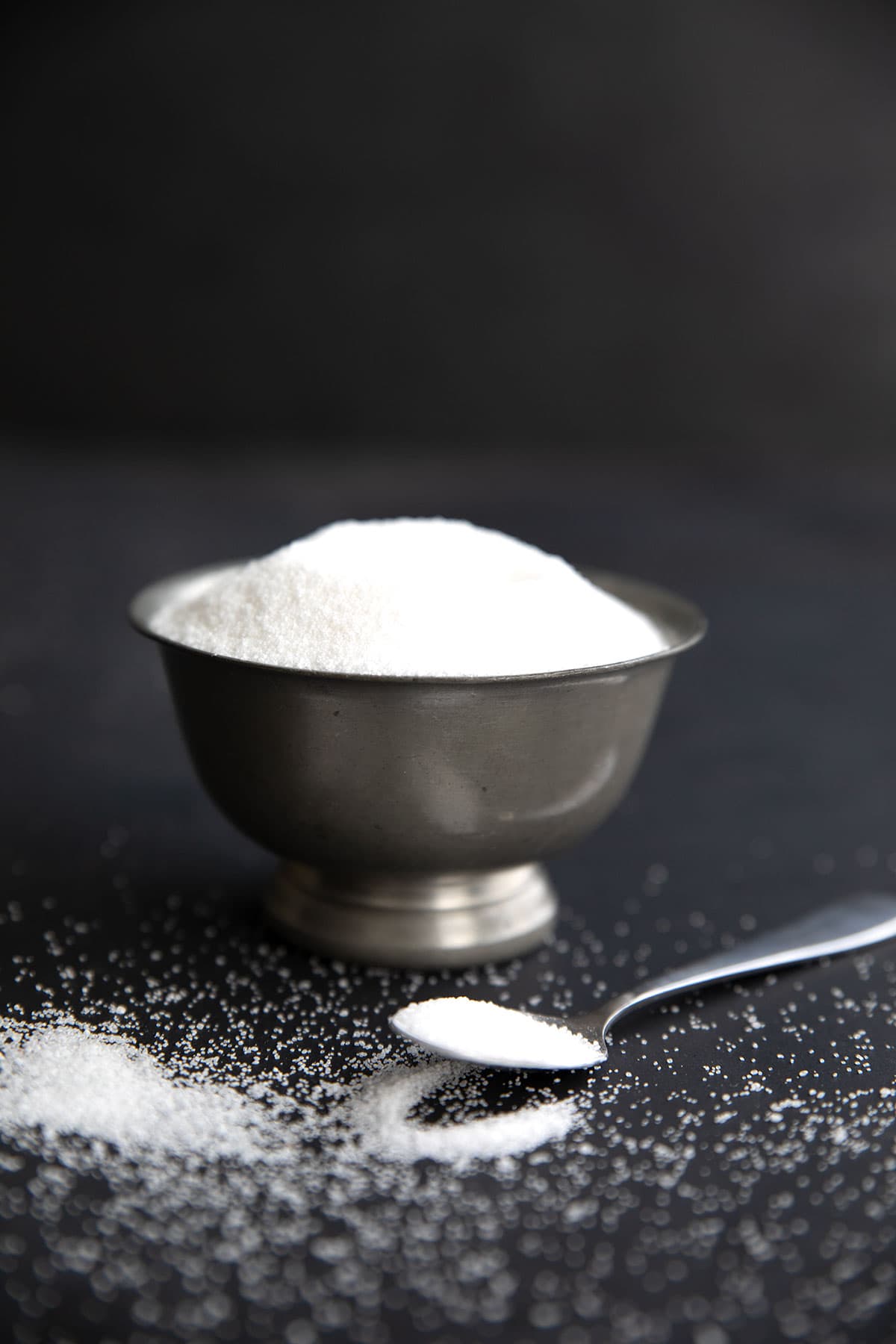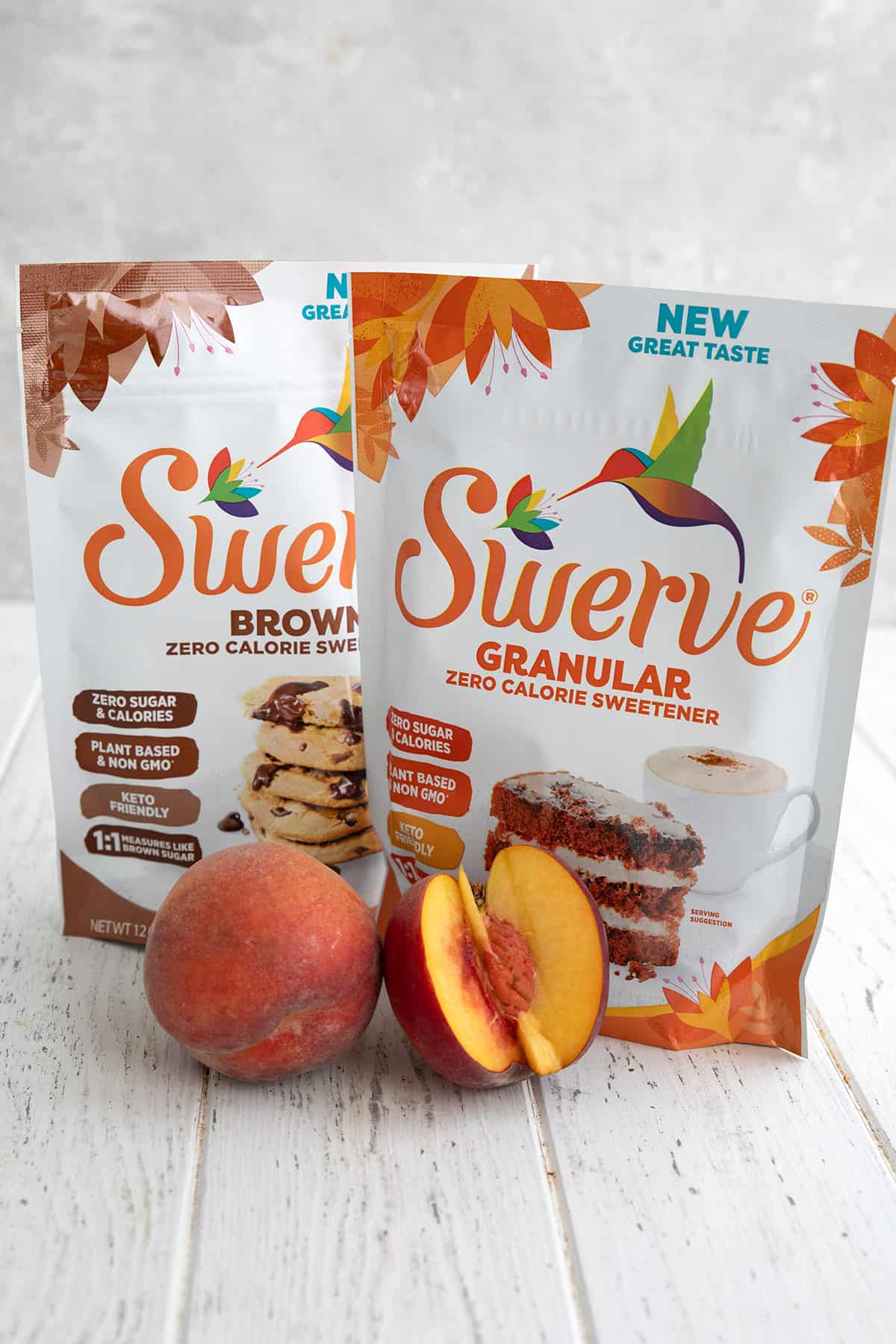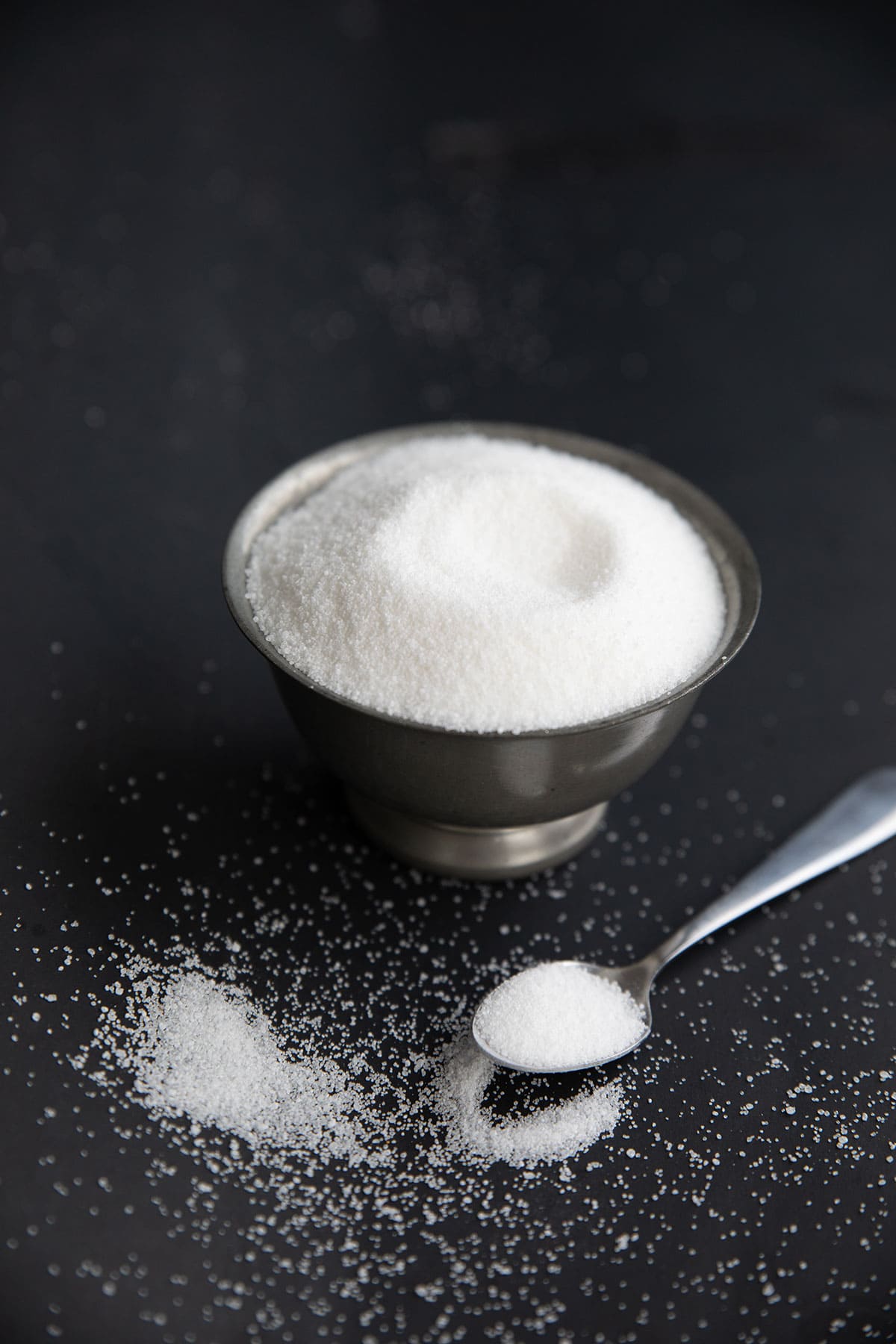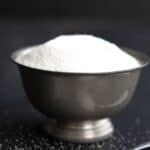Erythritol is a common alternative to sugar. But is has come under fire recently for potential health concerns. Is it still safe to eat? Let’s discuss.


I have built a successful business and career on keto baking. I pride myself on my in-depth knowledge and understanding of low carb ingredients and how they behave. And many readers turn to me for advice on how to use these ingredients to get the best results.
One of those ingredients has recently come under fire (again). I’ve had numerous messages asking for my thoughts on the study about erythritol and blood clots. It has certainly raised concerns and I feel it is important enough to warrant a full discussion.
So let’s dig in.


The study in question
In case you are unaware, erythritol was in the news recently because of a study that links consumption to blood clotting. This same association came up in 2023 in an observational study that had notable flaws. The recent study, however, is a clinical trial. You can read the full article HERE.
The researchers compared two groups of 10 healthy participants (20 subjects total). The first group consumed 30g of erythritol in a water solution, the other group consumed 30g of glucose in a water solution. Their blood plasma was tested both before and after consumption. The group who consumed erythritol had a significant increase in “platelet aggregation responses”, indicating a greater tendency toward forming clots. The subjects who consumed the glucose solution saw no significant rise in these factors.
The researchers conclude that consumption of erythritol may enhance the risk of thrombosis events. This in turn increases the risk of heart attacks and strokes.


Study limitations
As with any clinical trial involving human subjects, this study has its limitations. And several of these are acknowledged by the authors themselves. Small sample size notwithstanding, I see some further issues that need to be recognized.
After digging into the original study, as well as reading some professional analyses, a few things jumped out at me. I will outline them as clearly as I can.
1. Amount of erythritol: The subjects drank solutions that contained either 30g of erythritol or 30g of glucose. That is a lot of erythritol to consume in one sitting! The authors state that they chose that amount because it’s “a quantity commonly found in erythritol-sweetened foods”. I take serious issue with this statement.
Granted, I do not use a lot of pre-packaged drinks and bars, but I have NEVER seen that amount in ANY product I have ever used. The sweetened drinks I occasionally consume, such as Remedy Kombucha, contain all of about 4g of erythritol. The NuTrail granola that I enjoy while traveling contains only 5g. The HighKey cookies that I snack on once in a while contain 8g.
Even the sweetest of my recipes (and I am talking recipes like Keto Chocolate Cake) contain about 20g of erythritol. And let me be clear, I do not consume all of these things in a given day. They are all once-in-a-while treats.
Let me reiterate: 30g of erythritol in one sitting is a huge amount.
2. Only erythritol was consumed: The participants were told to fast overnight, and their blood was tested before and after consuming the erythritol or glucose solutions.
That means that they consumed these solutions on an empty stomach with no other food or nutrients that might slow down the absorption of the erythritol or glucose.
This is a highly artificial scenario. I don’t know anyone who gets up and drinks a glass of sugar water or erythritol water for breakfast! The very thought makes me feel a little queasy.
Other macronutrients such as protein, fat, and carbs, have a mitigating effect on the absorption of every other nutrient. Fat, protein, and fiber are all known to take much longer to digest, slowing down the whole process. For example, something like Chocolate Protein Muffins, contain 8g of erythritol, but they also contain 13g of fat, 5g of carbs, and 12g of protein.
We don’t consume erythritol in a vacuum, as they did in this study. So we don’t really have any idea how quickly the erythritol would be absorbed into the bloodstream in a real life situation.
3. Timing of blood tests: The participants underwent blood draws to test their plasma at baseline (before consumption) and 30 minutes after consumption (post-prandial).
This is the part that has me flummoxed. Why would they not test the subjects at a number of intervals after consumption? As anyone with diabetes can tell you, testing at different post-prandial periods (1 hour, 2 hour, etc) can give you vastly different readings in blood sugar. Surely it gives vastly different readings in erythritol too. But they only tested once, quite soon after the subjects consumed the solutions.
The authors do acknowledge that this is a limitation, but state that they wanted to minimize the inconvenience to their subjects, as well as study the “the impact of acute dietary exposure” to erythritol.
But as my other two critiques point out, the “acute dietary exposure” of 30g of erythritol consumed on an empty stomach is a highly artificial and, to be frank, HIGHLY UNLIKELY scenario. Unless you get up in the morning and drink 5 or 6 erythritol sweetened beverages in a row, with no food. Does anyone actually do this?
With this methodology, we are left with no real understanding about what happens in the hours or days after consuming erythritol. Nor do we have any insight into what happens to those of us who consume much more moderate amounts of this sweetener, but on a more regular basis.


Should you avoid erythritol?
None of my study analysis is meant to downplay the potential health risks of consuming erythritol. The recent studies do bring up some serious concerns about the use of alternative sweeteners. So should you avoid it altogether?
I know you want me to give you definitive answers on this matter, but I simply can’t do that. The intent of this article is to give you some context so that you can make a more informed decision. We all must evaluate our own comfort level with any dietary choices that may have associated health risks.
As keto and low carb dieters, we do this all the time as it is. We are constantly bombarded with warnings about how much fat or salt we eat, or how we don’t eat enough fiber to be healthy. Or how carbs are NECESSARY for survival. Or how ketosis is bad for you.
I have been consuming erythritol for over 14 years. While I haven’t had my blood tested for platelet aggregation, I haven’t had any signs of adverse health effects. Mind you, I don’t consume the 30g they tested in one sitting, and I’d say it would be a very rare occurrence that I consumed that much in a whole day. But I do consume moderate amounts with some regularity.
That said, I started to cut back on my own consumption after the observational study came out in 2023. I have not eliminated it but I often cut it with other sweetener options such as allulose, and sometimes with stevia extract. I am a huge fan of the SweetLeaf Sweet drops for an added boost of sweetness and keep the little squeeze bottles in my purse and my baking cupboard.


Erythritol in keto desserts and treats
So what about all the wonderful keto cookies and delicious treats on this website? Will I stop creating them? That would be a firm HELL NO! Because that would essentially take most of my joy out of life.
Will I stop using erythritol sweeteners altogether? No, because sometimes erythritol is the best sweetener for the job. If you follow me, you know that I am a stickler for texture and consistency. And if you’re looking for a crisp texture for in a recipe like keto shortbread cookies, only erythritol will work.
But I am being much more mindful of how much I use in any given recipe. I also try to provide as many sweetener options as I can in the Tips section of each blog post. I can’t test every possible variation myself but I can give an educated guess as to the outcomes and any accommodations you might need to make. I started this practice quite some time ago and will continue to do it.
I have created an enormous number of recipes over the past 14 years, some of which live on this website and many of which do not. I cannot go back and fix every recipe already existing on my site or in my keto cookbooks. But I try to address these things as they come up.
Is this my final word on the situation? No, because it is emerging and changing as we speak. There will be future research and studies that may give us a clearer picture of the risks of consuming erythritol. I am going to do my best to stay abreast of it as much as possible and I am certainly open to discussion and hearing your thoughts too.



